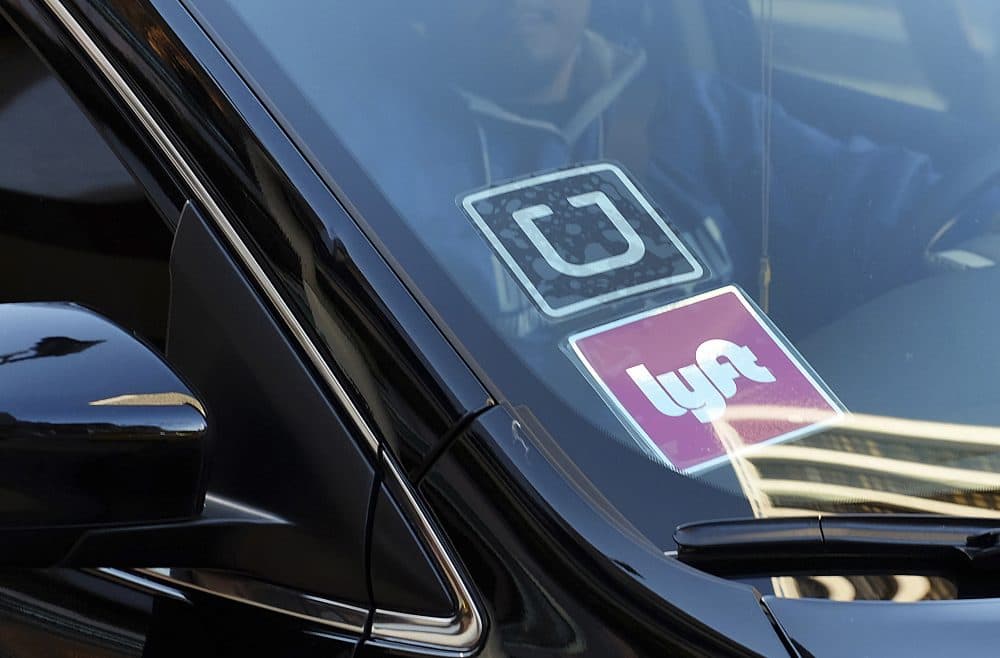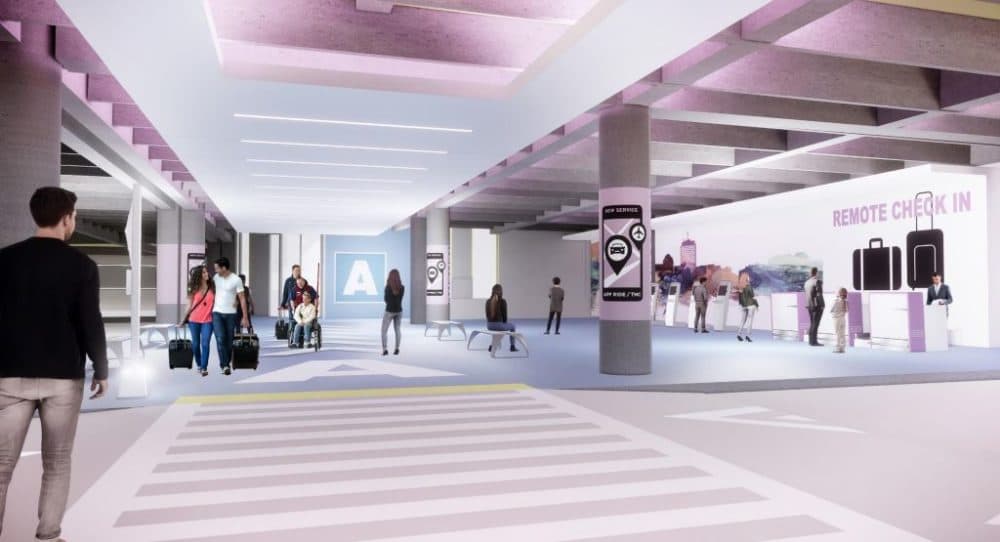Advertisement
Why Logan Airport Wants To Change Where Your Lyft Or Uber Drops You Off

Last year, drivers from ride-hailing services like Lyft and Uber took 12 million trips to and from Logan Airport.
But 5 million of those rides carried no passengers, as drivers approached or left the airport alone.
The figure has been cited by Massport, the agency that runs the airport, as a main reason for seeking to revamp the traffic flow for the popular services, as demand for them continues to grow and the use of high-occupancy vehicles declines.
The aim of Massport's proposal, first unveiled in March, is to reduce those empty trips — and also reduce congestion and greenhouse gas emissions.
"The bottom line is we need more people to get to and from the airport in fewer vehicles, and we think we can do that with these new strategies," the agency's acting director, John Pranckevicius, said in a statement.
A key strategy is to move all ride-hailing pickups (currently in outdoor lots) and drop-offs (currently curbside at various terminals) to a centralized location farther away: the Central Garage.
"By moving these operations into the garage," Massport says in the statement, "it will be easier for a driver dropping off a passenger to match with a waiting pick up passenger. Passengers will have a shorter wait time to be picked up, in a weather-protected area (unlike the current set up), and will have the option to take a Massport-discounted shared ride, such as uberPOOL and Lyft Line. Drivers will wait less time between customers, and experience less congestion."
The shared-ride discounts would be paired with increased ride-hailing fees. As Commonwealth Magazine reported: "The airport fee for ride-hailing apps, currently $3.75 for pickups only, will rise to $5 for both pickups and drop-offs."
Massport has estimated that its overall transportation plan — which would also increase Logan Express bus service and make some bus rides free — would take up to 3 million vehicle trips off the road.
Uber has sharply criticized the ride-hailing aspects of the proposal. The company calls for lower fee levels than Massport is seeking, and it wants to maintain its current pickup and drop-off system. Uber said it could use matching technology to, as the Boston Globe reported, "ensure that drivers dropping off a rider at a terminal will quickly be assigned a new pickup so they don’t leave the airport empty."
Massport has responded skeptically to the idea, saying that introducing "Rematch in the current configuration would add to congestion at the curb, not reduce it."
And on Friday the agency released new data and additional details that seem to expand on its case for changes to the ride-hailing system.
Massport estimates there will be 15 million ride-hailing trips this year — up from the 12 million last year.
It also released renderings of its proposed dedicated ride-hailing areas in the Central Garage, and said that the spaces would include check-in and baggage check services and wheelchair assistance.

The Massport board is expected to take up the ride-hailing changes later this month.
The debate about the services comes as Logan continues to set air travel passenger records. From 2012 to 2018, for instance, international passengers increased 65 percent.
And the debate comes as Greater Boston increasingly struggles with congestion. By one (debated) measure, the area has the worst rush-hour traffic in the United States. And more major U.S. metro areas, including Boston, are weighing congestion pricing schemes in an attempt to curtail vehicle trips. (New York will likely become the first major U.S. city to implement such a charge.)
It's not just about the collective frustration of sitting in gridlock.
In Massachusetts, the transportation sector accounts for nearly 40 percent of greenhouse gas emissions, and late last year the state joined with several others in a pledge to try to reduce such emissions.
